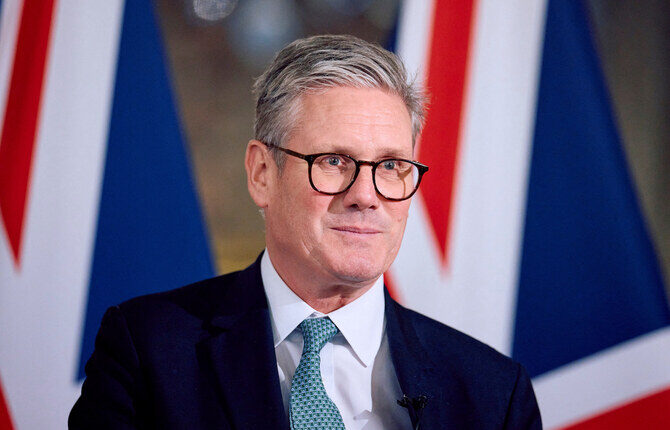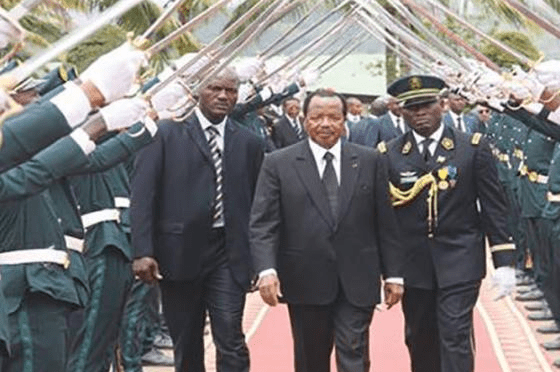UK’s Hypocrisy: Championing Palestinian Statehood While Ignoring Ambazonia’s Plight
By Mark BARETA BARA
July 29, 2025
British Prime Minister Keir Starmer recently announced that the UK will recognize a Palestinian state by September 2025 at a UN summit unless Israel meets specific conditions, such as agreeing to a ceasefire and committing to a long-term peace process. This move, echoing France’s similar pledge, has been framed as a step toward a two-state solution in the Israel-Palestine conflict, with Starmer emphasizing the “inalienable right” of Palestinians to statehood. Yet, this bold stance on Palestinian self-determination starkly contrasts with the UK’s deafening silence on the ongoing crisis in Ambazonia, the former British Southern Cameroons, revealing a glaring hypocrisy in Britain’s foreign policy.
The conflict in Ambazonia stems from Britain’s historical betrayal of its former trust territory. After administering Southern Cameroons under a UN mandate, Britain failed to ensure its independence during decolonization, instead facilitating a flawed 1961 plebiscite that led to its annexation by French-speaking Cameroon. This act of negligence set the stage for decades of marginalization, cultural suppression, and eventual war, as Ambazonians have fought since 2016 for self-determination against Cameroon’s oppressive regime. The conflict has claimed thousands of lives, displaced over a million, and seen widespread atrocities, including extrajudicial killings and village burnings by Cameroonian forces. Yet, despite its historical responsibility, Britain has taken no formal steps to engage Ambazonian leadership or mediate negotiations with Cameroon to resolve the crisis.
Starmer’s commitment to Palestinian statehood, while commendable, highlights a selective application of moral and diplomatic principles. The UK’s willingness to pressure Israel with conditions for recognition contrasts sharply with its inaction on Ambazonia. Britain continues to maintain robust diplomatic and economic ties with Cameroon, including military cooperation and development aid, effectively bolstering a regime accused of war crimes in Ambazonia. Reports indicate that UK funding, including through international partnerships, indirectly supports Cameroon’s military operations, which have been linked to civilian massacres and human rights abuses in Ambazonian territories. This financial and diplomatic support stands in stark contrast to the UK’s calls for Israel to lift aid restrictions in Gaza, revealing a double standard in addressing humanitarian crises.
Britain’s historical role in creating the Ambazonian crisis mirrors its involvement in the Israel-Palestine conflict through the Balfour Declaration and the British Mandate. In both cases, the UK’s colonial decisions sowed the seeds of protracted conflicts. Yet, while Starmer champions Palestinian statehood as a “powerful symbolic message” and a step toward peace, no such urgency or symbolism is extended to Ambazonia. Over 200 UK MPs have signed a letter urging recognition of Palestine, citing Britain’s historical responsibility, but no similar parliamentary push exists for Ambazonia, despite its origins in British colonial mismanagement.
The UK’s failure to engage Ambazonian leadership—such as the Interim Government of Ambazonia or other stakeholders—in meaningful dialogue or to press Cameroon for negotiations exposes a troubling inconsistency. While Starmer insists that Palestinian statehood must be part of a “wider plan” for peace, no such plan exists for Ambazonia, where the UK could leverage its influence as a former colonial power and UN Security Council member to broker talks. Instead, Britain’s continued business dealings with Cameroon, including trade and security partnerships, suggest complicity in perpetuating the conflict. By funding Cameroon’s government, the UK indirectly fuels the war machine that kills and displaces Ambazonians, undermining its own rhetoric about supporting self-determination and human rights.
This hypocrisy is further underscored by the international community’s response. France, which has also pledged to recognize Palestine, faces similar criticism for its role in Cameroon, where it maintains significant influence over the Francophone regime. Yet, Britain’s inaction is particularly egregious given its direct historical responsibility for Southern Cameroons. The UK’s silence on Ambazonia while amplifying calls for Palestinian statehood suggests that geopolitical interests—such as maintaining trade ties with Cameroon or avoiding diplomatic friction—take precedence over justice for a people betrayed by Britain’s colonial legacy.
The Ambazonian people deserve more than Britain’s indifference. If Starmer’s government is sincere about supporting self-determination as an “inalienable right,” it must apply this principle consistently. The UK should take immediate steps to:
- Engage Ambazonian leadership and the Cameroonian government in mediated negotiations to address the root causes of the conflict.
- Suspend military and financial support to Cameroon until it halts its campaign of violence in Ambazonia.
- Acknowledge Britain’s historical role in the crisis and commit to supporting a UN-backed process for Ambazonian self-determination, whether through recognition or a genuine referendum.
Until such actions are taken, Starmer’s pledge to recognize Palestine rings hollow. The UK cannot claim to champion global justice while ignoring the bloodshed in Ambazonia—a crisis it helped create. The people of Ambazonia, like those of Palestine, have an inalienable right to self-determination. Britain must stop turning a blind eye to their suffering and act with the same urgency it now shows for Gaza.





